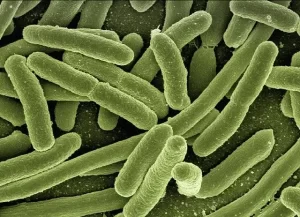Remdesivir data released and GSK Sotrovimab performed well
- Did Cloud Seeding Unleash a Deluge in Dubai?
- Scientists Identify Gut Bacteria and Metabolites that Lower Diabetes Risk
- OpenAI’s Model Matches Doctors in Assessing Eye Conditions
- UK: A Smoke-Free Generation by Banning Sales to Those Born After 2009
- Deadly Mutation: A New Monkeypox Variant Emerges in the DRC
- EPA Announces First-Ever Regulation for “Forever Chemicals” in Drinking Water
Remdesivir real-world data released and GSK monoclonal antibody Sotrovimab performed well
Remdesivir data released and GSK Sotrovimab performed well. Although several vaccines have been approved, unfortunately, there has not yet been a COVID-19 “specific drug” in the epidemic.
At the beginning of 2020, Gilead Sciences’ Ebola drug Remdesivir (Remdesivir) was once regarded as the “people’s hope” due to its outstanding anti-COVID-19 efficacy. However, this “myth” will not be long in the future. Later, it was shattered with a number of unsatisfactory clinical data.
However, scientific research is always full of opportunities. On June 21, local time, Gilead announced the efficacy data of Radixivir in nearly 100,000 patients in the real world, which could restore the reputation damaged in the past.
On the same day, GlaxoSmithKline (GSK) also brought good news about the COVID-19 drug, showing its amazing data on the research monoclonal antibody Sotrovimab in the treatment of COVID-19.
“The Hope of the People” is back!
The data released by Gilead covers three real-world data analyses, including a total of 98,654 COVID-19 patients. Overall, compared with the control group, the mortality rate of patients receiving remdesivir treatment was significantly lower. Two of the studies also observed that patients treated with remdesivir are significantly more likely to be discharged on the 28th day.
In the double-blind, placebo-controlled ACTT-1 study, the mortality rate of patients treated with remdesivir was 11% on day 29, which was a downward trend compared to 15% for placebo. Although the difference is not obvious enough, if the disease severity of the entire study population is further included in the analysis, it will be found that when the patient requires low-flow oxygen therapy, the mortality rate of the remdesivir group was significantly reduced by 70% on the 29th day.
Remdesivir was approved by the FDA for emergency use in May 2020, allowing medical personnel to use it in hospitalized patients with COVID-19 pneumonia. Subsequently, it was officially approved by the FDA on October 22, 2020, becoming the first new coronavirus treatment drug in the United States. It is suitable for COVID-19 adult and pediatric patients who are 12 years old and above and weigh at least 40 kg and need to be hospitalized. Gilead Sciences has previously It is said that the drug can shorten the hospital stay of patients with COVID-19 pneumonia by 5 days.
GSK monoclonal antibody Sotrovimab
On the same day that Gilead released the real-world data of Remdesivir, GlaxoSmithKline (GSK) and Vir Biotechnology also announced that the research monoclonal antibody Sotroviab, which is jointly developed by the two parties, is in the phase 3 clinical trial COMET- Stunning performance in ICE research.
Preclinical studies have shown that Sotrovimab has the potential to prevent the new coronavirus from entering healthy cells and to clear infected cells. In the COMET-ICE study, the drug was shown to significantly reduce the risk of hospitalization or death in patients with mild to moderate COVID-19.
After 1,057 patients received Sotrovimab and placebo for 29 days, only 6 patients (1%) were hospitalized for more than 24 hours or died in hospital, compared with 30 patients (6%) in the placebo group. Compared with placebo, Sotrovimab reduced the risk of hospitalization for 24 hours or death by 79%.
At present, the National Institutes of Health (NIH) has updated the COVID-19 treatment guidelines, recommending Sotrovimab for mild to moderate COVID-19 patients who are at risk of developing severe disease. GSK and Vir Biotechnology plan to submit a Biologics License Application (BLA) to the U.S. Food and Drug Administration in the second half of 2021.
(source:internet, reference only)
Disclaimer of medicaltrend.org
Important Note: The information provided is for informational purposes only and should not be considered as medical advice.



